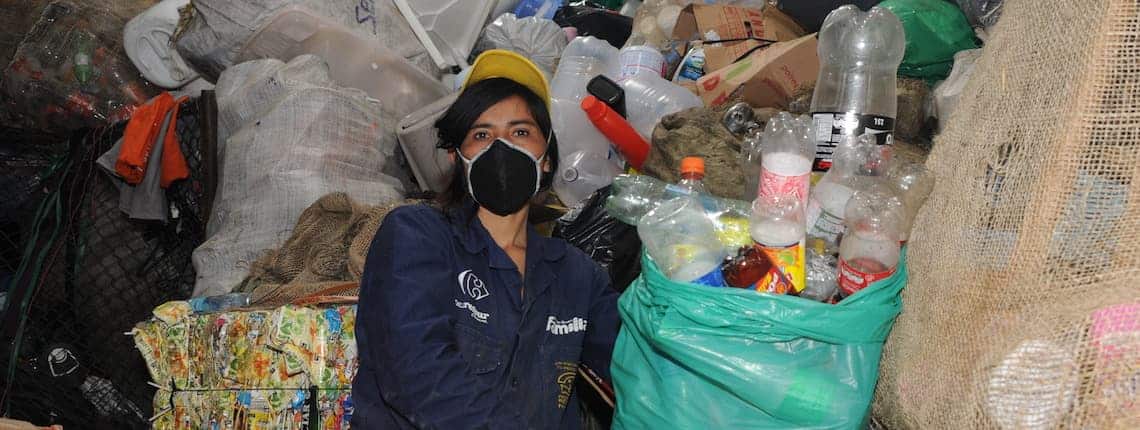Sixty per cent of the world’s workforce consists of informal workers. Their voices are crucial to unpack the hardship, injustice and possibility for transformation as a result of the COVID-19 crisis.
In a series of Workers’ Voices webinars, WIEGO provides a space for learning and exchange where workers’ organizations and networks of informal workers can learn from and discuss experiences. So far, they have discussed innovative policy, advocacy and organizing strategies during the crisis, and positive policy responses as well as interventions led by workers’ organizations to support informal workers in the pandemic.
Domestic workers’ organizations step up to help
When the coronavirus started to spread and restrictions on movement were introduced across India, housing complexes and gated communities banned the entry of domestic workers. Even as the lockdown has been gradually lifted, domestic workers continue to struggle. Many domestic workers have not been able to return to work because employers no longer want workers in their homes, fearing they would spread the disease.
Pratima, a domestic worker in Delhi, is finally back at work, but only partially. Nirmala, who works in Kerala, lost her job and her pay ended abruptly. In a recent WIEGO Workers’ Voices webinar, they shared with other workers their experiences of the impact of COVID-19 and the lockdown on their work, the difficulties they faced and the support they received.
“Whatever we earn, we use to run our household so, when lockdown started, we had no savings.” — Pratima
READ: Coping with COVID-19: SEWA’s Domestic Workers on the Pandemic and Beyond
Waste pickers defend their role as essential service providers
The days following the confirmation of the first COVID-19 cases in Colombia were rather uncertain for waste pickers’ organizations that had been providing recycling public services in the country since 2016. The government was developing measures to prevent the spread of the disease, while also defining the essential services that would enable the population to remain at home. If recycling were to be left out, waste pickers’ organizations ran the risk of being displaced by waste management companies and losing the recognition and payment they had fought so hard to obtain.
In a webinar from WIEGO’s Workers’ Voices series, Nohra Padilla—leader of the Waste Pickers Association of Bogotá and the National Association of Waste Pickers—shares with other workers the advocacy efforts that were needed to defend waste pickers’ role as public service providers and the challenges facing waste pickers in Colombia during the pandemic.
“The next stage of the crisis will be even worse.” — Nohra Padilla
READ: Recycling in Colombia: An Essential Service in the Time of COVID-19
Street vendors build on the experiences from the Ebola crisis
When COVID-19 hit, Vandi Lansana knew what he had to do. As National Vice President of the Sierra Leone Traders’ Union, he had dealt with a fast-spreading, dangerous disease before: from 2014-2016, Sierra Leone experienced a deadly outbreak of the highly contagious Ebola virus. Over the course of three years, citizens in Sierra Leone experienced a series of lockdowns and quarantines. During these lockdowns, the Sierra Leone Traders’ Union (SLeTU) played an important role in ensuring its members were well informed.
As part of WIEGO’s Workers’ Voices webinar series, Vandi discusses what he learnt during the Ebola outbreak, and how he used those lessons to organize and assist SLeTU members to sustain their livelihoods during COVID-19.
“The experience with Ebola helped us to minimize casualties.” — Vandi Lansana
READ: Using learnings from the Ebola crisis
WIEGO is listening
A new WIEGO study, COVID-19 Crisis and the Informal Economy, creates a platform for the experiences and voices of informal workers to rise to the top of the policy agenda; for those who create policy to see, hear and feel what is going wrong at the base of the economic pyramid—and what we could start doing right.
READ: We need to listen to the workers: WIEGO partners conduct COVID-19 Global Impact Study
Photo: Waste picker in Bogota, Colombia. Credit: WIEGO
